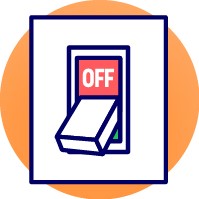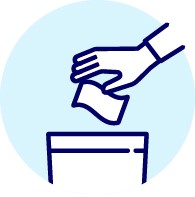Getting back to normal after a flood can take time. The following steps are important to understand after a flood -
- the immediate aftermath
- assessing the damage and finding temporary accommodation
- cleaning and stripping out
- disinfecting and drying your home
- repair and reconstruction work
- moving back into your home
We have put together some to help you recover from a flood. For more information, access the following guides -
- responding the major floods – what to expect from your insurer
- a guide to resistant and resilient repair after a flood
- recovering from a flood
First steps
Check with the emergency services that it is safe to return to your property. Do not turn on your -
- water
- gas
- electricity
Get your utilities company or a qualified engineer to check they are safe before turning them back on.
Being flooded can be a traumatic experience. We have put together some guidance and advice for you to follow if you need help recovering from a flood.
Insurance
You should contact your insurance company as soon as you can – they will tell you what to do next. Some important things to consider -
- do not throw anything away until your insurance company has visited your property and recorded the damage
- take photos and record the flood watermark. For example, how high the water reached on your wall
If you do not have insurance, you will need to pay for any temporary housing and repairs yourself. You can contact us or charities to find out if there are any grants or other support available.
If you are a private tenant, your landlord is responsible for all repairs. Advice is available -
If you are a council tenant, contact your housing team as soon as you can. This is so that temporary accommodation can be arranged. We are responsible for all repairs.
Financial help
You may be entitled to financial help from us if the government release funding after a significant flood event. The funding is to help you Build Back Better. This means building flood resilience measures into the recovery process to reduce the risks and impacts of future flood events.
If you own your home, you are responsible for any repair.
Building back better
Clearing up and making repairs after a floo d can be costly and time consuming. We recommend that you build back better so that your risk of being flooded in the future is reduced and the impact it could have on you is significantly less. This means putting property flood resilience measures onto your home or business.
d can be costly and time consuming. We recommend that you build back better so that your risk of being flooded in the future is reduced and the impact it could have on you is significantly less. This means putting property flood resilience measures onto your home or business.
Some important things to consider -
- do not throw anything away until your insurance company has visited your property and recorded the damage
- take photos and record the flood watermark. For example, how high the water reached on your wall
- floodwater may contain sewage. It is important to clean up safely. Here you can find public advice on flooding and health
Disposing of rubbish

Floodwater may contain sewage, so it is important to clean up safely.
You can put most things in the bin as long as they are not polluted by sewage or chemicals.
Contact the environmental health department to get rid of things polluted by chemicals or sewage. We will tell you how to dispose of them as hazardous waste.
Mental health and wellbeing
Flooding can impact adults and children’s mental health in different ways. If you need support with your mental health, it is important to ask for help as soon as you can by -
- speaking to your friends and family or your doctor
- checking the NHS website to find where you can get urgent help for mental health
- contacting the Samaritans to talk to a trained volunteer anonymously. They offer free, confidential support 24-hours-a-day
More guidance is available here.
Prepare for future floods
The more prepared you are before a flood, the easier and faster it is to recover after a flood. We recommend you follow the advice on the be flood aware pages.

